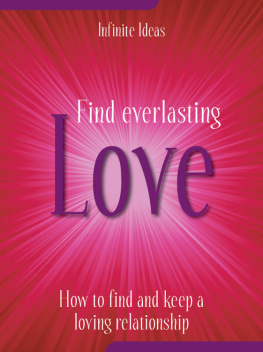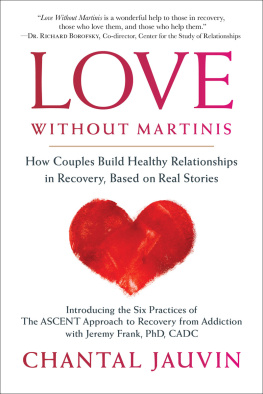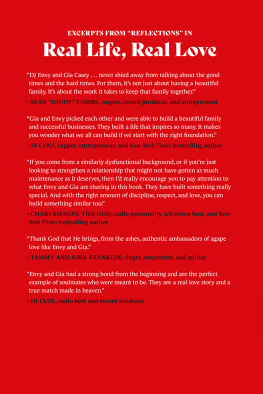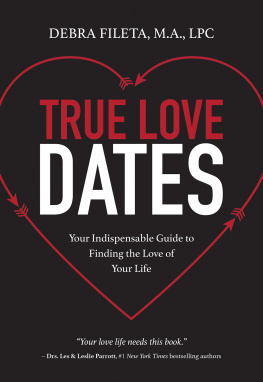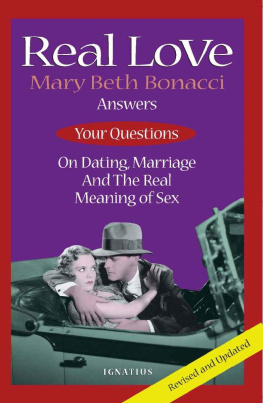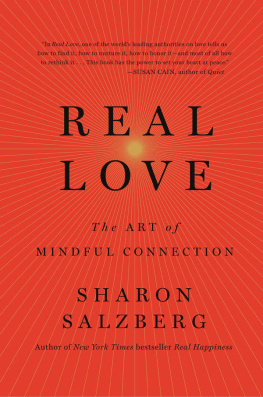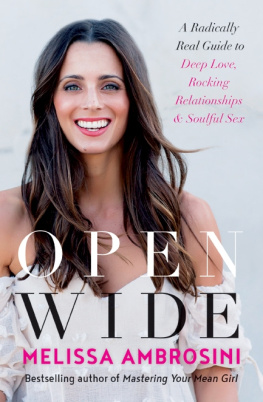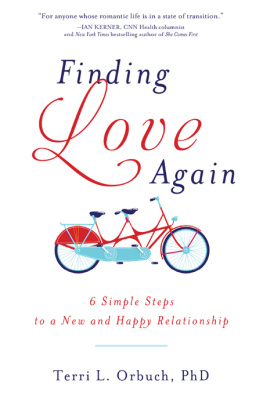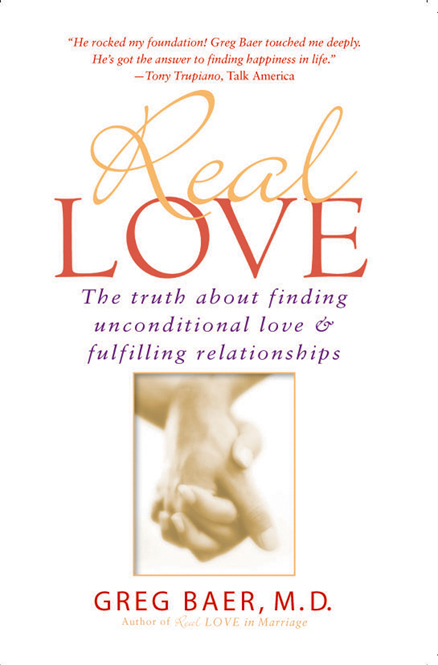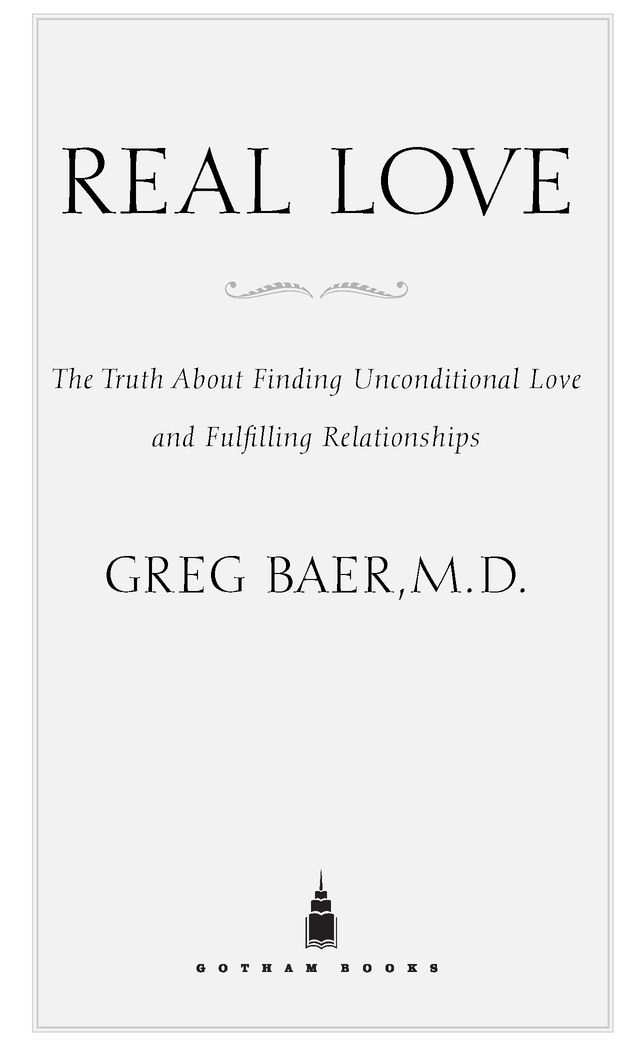Table of Contents
ACKNOWLEDGMENTS
This book is the result of a learning process that involved uncounted thousands of steps, most of which Im sure I dont appreciate or remember. I cant possibly acknowledge the contribution of everyone who taught me about love and relationships, but I can at least make a feeble attempt to do that. I feel a profound sense of gratitude that Ill never be able to fully express
to those I inconvenienced and injured. We learn by making mistakes, and perhaps I chose that avenue more than most. I learned about loving and relationships by making mistakes that caused pain and hardship for many people who had hoped for much better from me.
to those who loved me. I can only repay them by sharing with others what Ive learned.
to those who allowed me to practice on them while I was learning. All the material in this book was field tested on brave souls who were willing to try what I suggested.
to my wife, Donna. I never imagined feeling as unconditionally loved by one human being.
to my children, who patiently allowed me to make innumerable mistakes as a parent while I learned how to love them.
Im also grateful to those who were so helpful in the development and production of the book itself:
to my literary agent, Wendy Sherman, who has expressed an energetic faith in me and held my hand through the publication process.
to Bill Shinker and Lauren Marino at Gotham Books, who had the vision to develop this idea.
to Judy Kern, who taught me that being an author doesnt necessarily make one a writer.
INTRODUCTION
Like most of us, I was told as a child that if I did all the right thingsset my goals high, worked hard, and followed the rules along the wayI would accomplish great things. And it was further implied that, as a result, I would grow up to be happy. All our lives, weve heard people declare that theyd be happy if only they had more money, or a better job, or more sex, or a bigger house, or more opportunity to travel, or something else. I was determined to ensure my future happiness by having an abundance of all those things and more, and from an early age I worked hard to earn them.
I was valedictorian of my high school class, finished college in two and a half years, and received the highest honors in medical school. After completing my internship and specialty training in eye surgery, I eventually established one of the most successful ophthalmology practices in the country. I performed thousands of operations and taught other physicians locally and across the country. I was a leader in my church and in the local Boy Scouts organization. I had everything money could buy, and I was a husband and the father of five beautiful children.
By the time I reached my late thirties, Id accomplished almost every goal Id ever set for myself, but despite all my successes, I slowly came to the terrible realization that I had not achieved the happiness Id been promised. When I was standing in front of a group of physicians, teaching the latest surgical techniques, and everyone was admiring me for my knowledge, I felt relatively satisfied with my life for the moment. And some of those expensive vacations were exciting while I was actually in those far-off, exotic places. But when I was all alone, with nothing to distract me, I knew something was missingI just didnt know what it was. I couldnt have worked any harder. Id done everything Id been assured would bring me the happiness I wanted, but still something was wanting.
I found it difficult to sleep at night and began to take some of the sleeping pills we kept at the office for postsurgical patients. When those were no longer effective, I took other tranquilizers, and before long I was injecting narcotics every night. I rationalized my drug addiction for a long time, but it increasingly affected my behavior and my emotional health. Then, one evening, as I sat in the woods behind my house with a loaded Smith & Wesson 10mm semi-automatic pressed to my head, I finally realized that I couldnt rationalize my behavior any longer. I knew I needed to do something about my life.
I went to an in-patient drug treatment facility, and after my discharge I participated in several twelve-step programs for a while. Getting off the drugs saved my life, but it only put me back where Id been when I started using them. I was still desperately missing something, but this time I was determined to find out what it was. I tried individual and group therapy, support groups, mens groups, New Age techniques, and Native American spiritual groups, among others. Each had wisdom to offer, but the old emptiness I felt was not being filled.
In my searching, I found many others whose feelings were similar to mine. Most of them hadnt been addicted to drugs, but they all were missing the profound happiness theyd always hoped for in their lives. We began to meet together in our homes, where we tried a variety of techniques Id experienced or read about. Gradually, we eliminated the things that didnt work, and we discovered some principles that were astonishingly simple and effective. People who had been unhappy for a long time, in many cases despite years of therapy, were finding the first genuine happiness theyd ever known.
As we began to figure out what worked, I started writing down what wed learned, handing out a few pages at a time to the men and women who participated in those early experiments. Eventually, my observations became two self-published books that have now been read by thousands. Ive shared these principles with people all over the country, and as theyve applied them, their lives have changed in remarkable ways.
When I was trying to fill my emptiness, and later, as I was learning to change my life, I made many mistakes as a person, a husband, and a father. Among other things, those mistakes caused the end of my twenty-two-year marriage. Learningas I discoveredcan be very expensive. Now Im deeply gratified to see the results of what Ive learned, and to share it all with you. My second wife and I are the parents of seven children between us, and were happier than wed ever imagined it was possible to be.
Certainly there is a demonstrated need for people to learn something different. Half the marriages in this country end in divorce. One out of three children is now raised in a single-parent home. Ten to twenty percent of us are addicted to alcohol or drugs. One third of all girls and forty-five percent of all boys have had sex by age fifteen (compared with five percent for girls in 1970 and twenty percent for boys in 1972). Twenty-one percent of ninth graders have had four or more sexual partners. Nine percent of adult males will spend some time of their life in prison. I believe those statistics provide overwhelming evidence that were unhappy and looking for something thats missing in our lives. Thousands of people have found that missing something as theyve implemented the principles in this book. And I have great confidence that you, too, will enjoy the same experience.
The Missing Ingredient
What Relationships Really Need
Relationships fail all around us every daybetween spouses, lovers, siblings, friends, and co-workers, among others. But despite an abundance of self-assured finger-pointing, the people involved rarely have any idea what actually went wrong. As a result, many people seem to be caught in an endless cycle of disappointment and unhappiness, blindly repeating the same mistakes.


